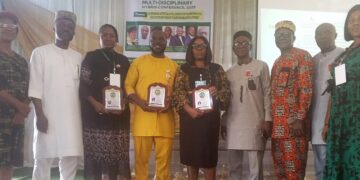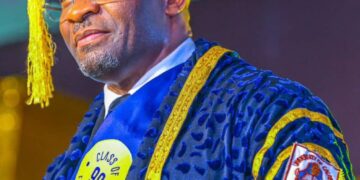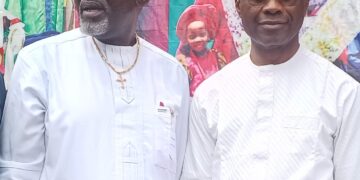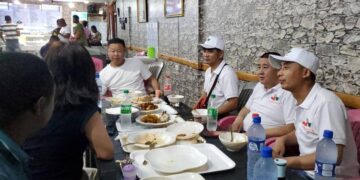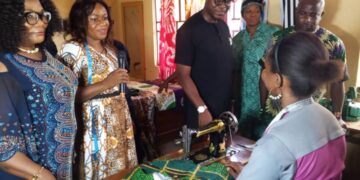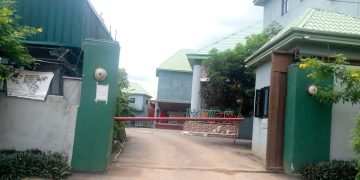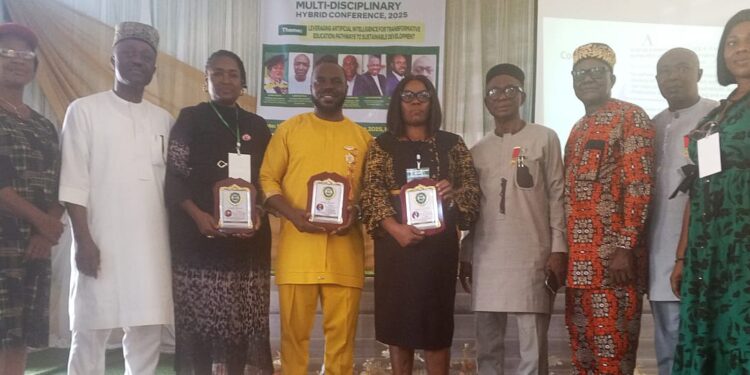ANSPOLY Conference: Rector Warns Against Unguided Application Of AI In Education
Experts have called for cautious use of Artificial intelligence in the education sector should not be a replacement for teachers.
Participants at the 4th International Multidisciplinary Hybrid Conference organised by the Anambra State Polytechnic (ANSPOLY), Mgbakwu raised the concern on Friday.
The theme of the conference which was organised in conjunction with Nigeria Institute of Management, Anambra Branch was “Leveraging Artificial intelligence for Transformative Education: Pathways to Sustainable Education “.
Dr Chioma Awuzie, the Rector of the Federal Polytechnic Oko, Anambra Awuzie in a keynote described Al as a catalyst for educational transformation because it held immense potential to reinvent teaching, learning and evaluation.
Awuzie who was represented by Dr Nkiruka Akabuike, Deputy Rector of FedPoly Okoye said AI innovation provided adaptive learning platforms for personalised learning experiences, intelligent tutoring systems, automated assessment and teacher support which reduces manhour loss by 40 percent.
She called for a digital inclusion strategy to address affordability, connectivity, electricity, device accessibility and digital literacy adding that only 35 percent of Nigerians had access to affordable and reliable internet which were basic requirement for leveraging Al-powered education
“But these innovations must be strategically implemented, Al should not replace teachers, instead it should augment human potential and elevate the teaching-learning experience.
“As we embrace Al, we must not lose sight of the principle of inclusion. The promise of Al must be for all, not just a privileged few.
.”We must resist the temptation to adopt Al as a quick-fix tool, let us deploy it deliberately, ethically and inclusively,” she said.
Also speaking, Dr Ikechukwu Umeh, a Data Communication expert and lecturer at the Nnamdi Azikiwe University,, Awka said though AI was important to teaching, it should be de-emphasised in learning to avoid ‘false intelligence syndrome’.
Umeh said challenges with student reliance on AI will limit them to the generative data that had been fed into it which could not be compared to the originality and interactivity with the teacher.
“If we cling so much to AI, we may lose our humanity, it will engender solitude.
“So, AI should principally be an aid to the reach and not his replacement, that is why we recommend that there should be deliberate policy to upgrade the reach and make them upgrade AI.
“AI has come to stay and Nigeria must embrace technology but we have to ensure we do not lose our core values,” he said.
Earlier, the chairman of the Prof. Okoye in his opening remark said that AI had a wide range of applications and benefits, but cautioned against unguided use of it especially among children.
Okoye said AI had the potential of harming the child’s health, reasoning capacity and psychological development.
In her welcome speech, Dr Njideka Chiekezie, Acting Rector of ANSPOLY, said the International Multi-disciplinary Academic Conference in the spirit of intellectual curiosity, collaboration, and innovation which lied at the heart of global academic advancement.
Chiekezie said the theme reflected the collective aspiration to explore the transformative potential of Artificial Intelligence in education and its impact on sustainable development in today’s rapidly evolving world.
“This conference provides the platform for us to share knowledge, exchange ideas, and collaborate on harnessing Al’s power to drive education transformation and sustainable development.
“I encourage participants to fully engage, share generously, and explore potential collaborations,” he said.
Awards of recognition were conferred to deserving persons including Awuzie and Umeh for their contributions
to technology development in Nigeria.
